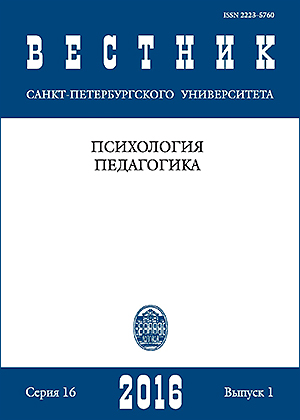Self-narrative as an instrument of identity construction: existential-narrative approach
Abstract
Autobiography as a “fi rst-person” story, telling about who I am in my whole life, takes part in construction of socially shared knowledge about one’s Self. Narrative form of story, including plot, language patterns and metaphors used, unconsciously manages protagonist image and impressions of narrator’s fi gure. We consider image schemas of mental representation of time and space, along with verbal models of temporal coherence and topology of life events in narrative structure to be of signifi cance. T. Habermas and S. Bluck (2000) clams that life narratives and autobiographical reasoning are delineated in terms of 4 types of global coherence (temporal, biographical, causal, and thematic). M. Johnson (1987) argued that image schemas as dynamic analog representations of spatial relations and movements in space can be used in processing of abstract concepts, for example a “course of life” idea can be interpreted in terms of “pass”, “link”, “cycle”, “center-periphery” and “scale” image schemas of embodied sensorimotor experience. Our study provides new understanding of relations between global coherence of life narratives and image schemas of time representation in autobiography in frame of protagonist and narrator’s identity presentation. Multiple re-telling of life story in diff erent social context and time periods, along with tolerance of post-modernity discourse to discordance, multi-dimensions, fl uidity of boundaries, fragmentariness of narrative, all of it challenges the image of a whole, united, proactive and developing protagonist. Our fi ndings suggest the potential usefulness of the acknowledgement of modern “empirical self ” as contextually multiple, dynamically transforming and fl uid, developing horizontally toward experiencing the full r ange of polarities, on condition that we consider the narrative identity potential of “existential self ” construction in discourse of human dignity, providing the realization of its wholeness by discounting the boundaries between multiple selves in time and social space, by means of discursive deconstruction of self-esteem value scales.
Keywords:
identity, autobiography, Self-narrative, narrative coherence, image schema, time, existential self, multiple selves
Downloads
References
References
Downloads
Published
How to Cite
Issue
Section
License
Articles of "Vestnik of Saint Petersburg University. Psychology" are open access distributed under the terms of the License Agreement with Saint Petersburg State University, which permits to the authors unrestricted distribution and self-archiving free of charge.




